The most moving First World War poems
First World War poetry described the terror of the trenches and the futility of war
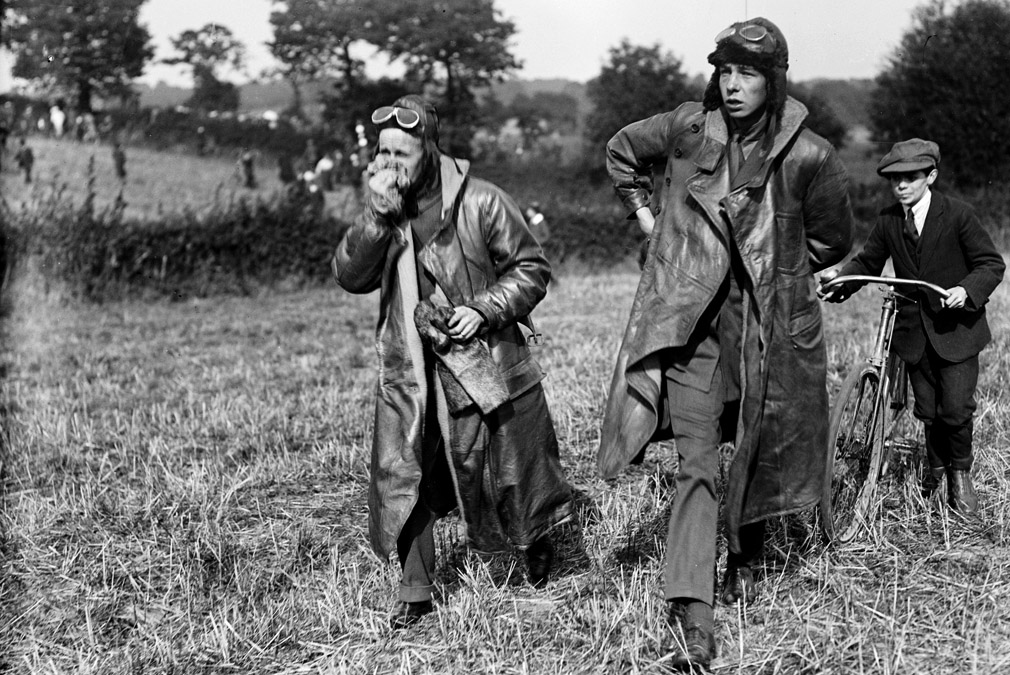
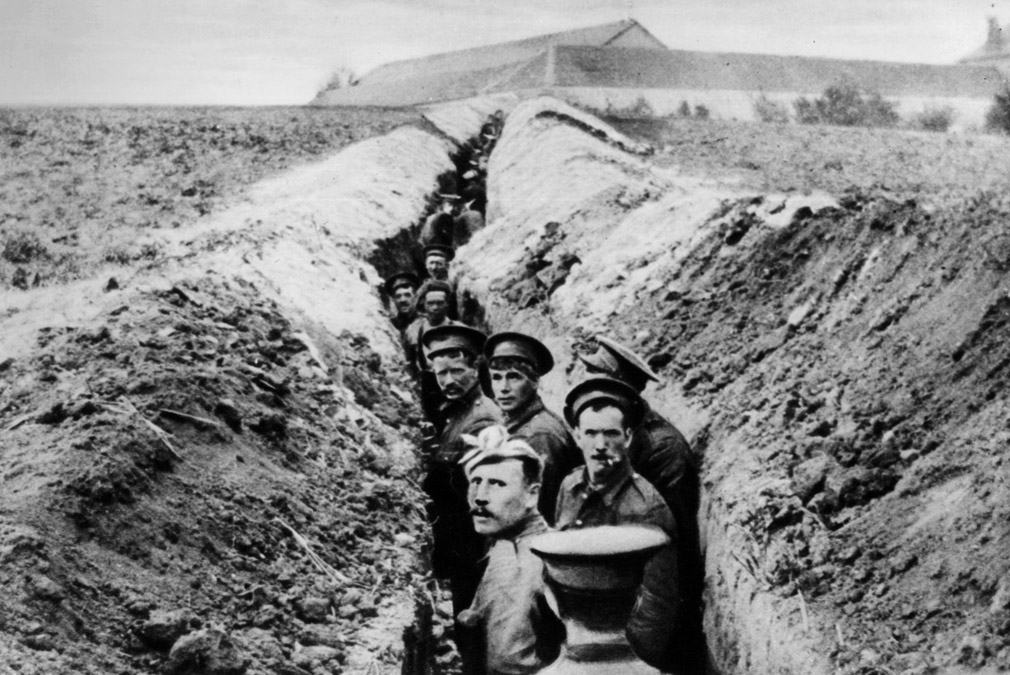
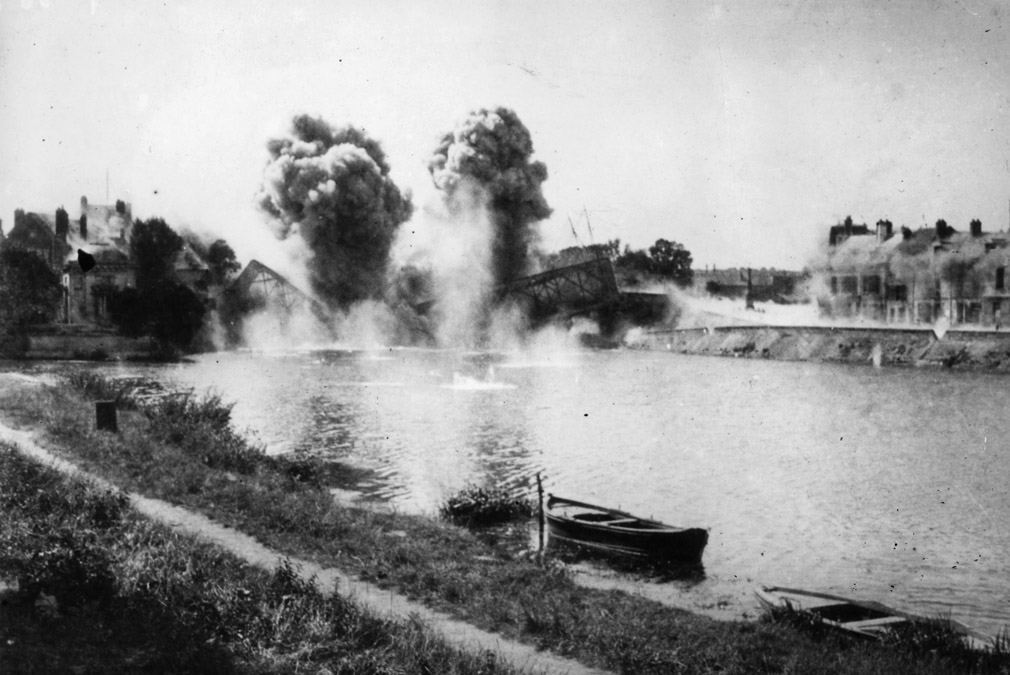

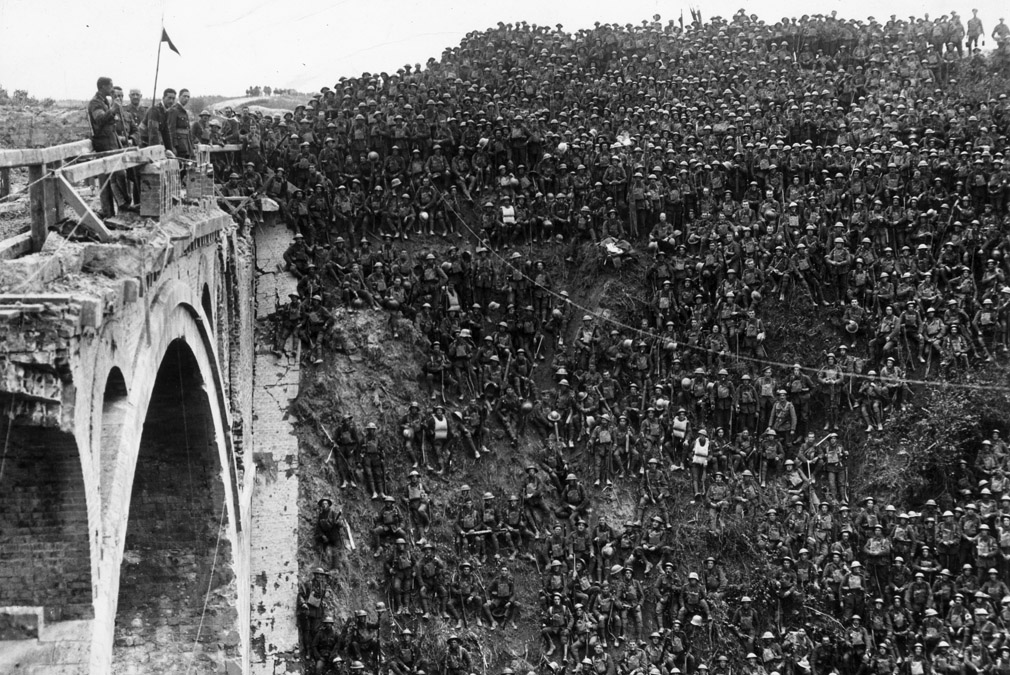
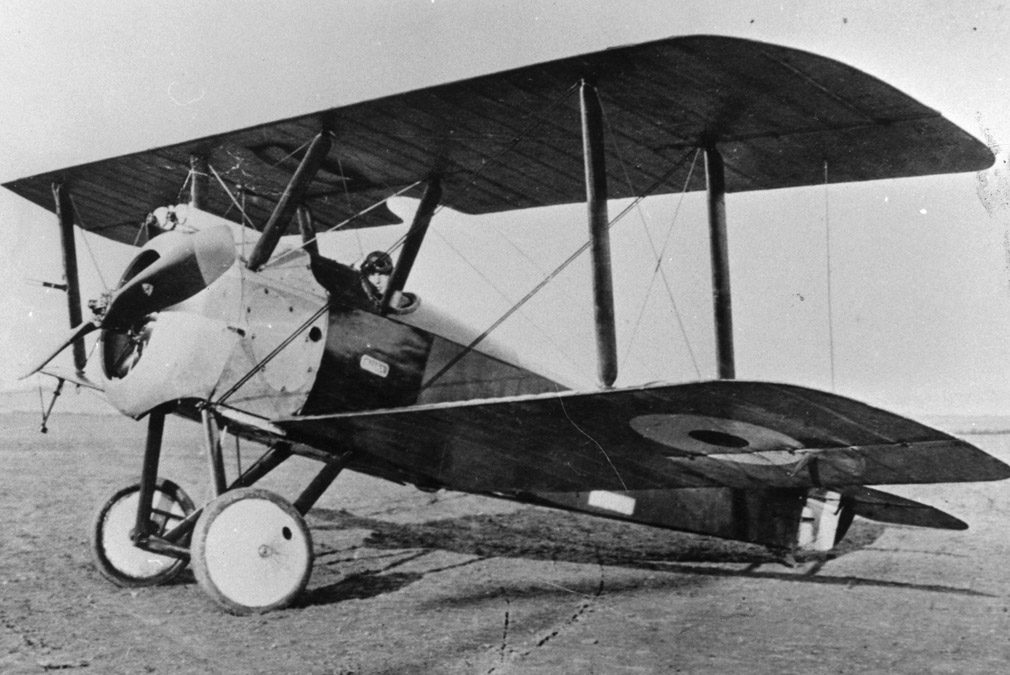
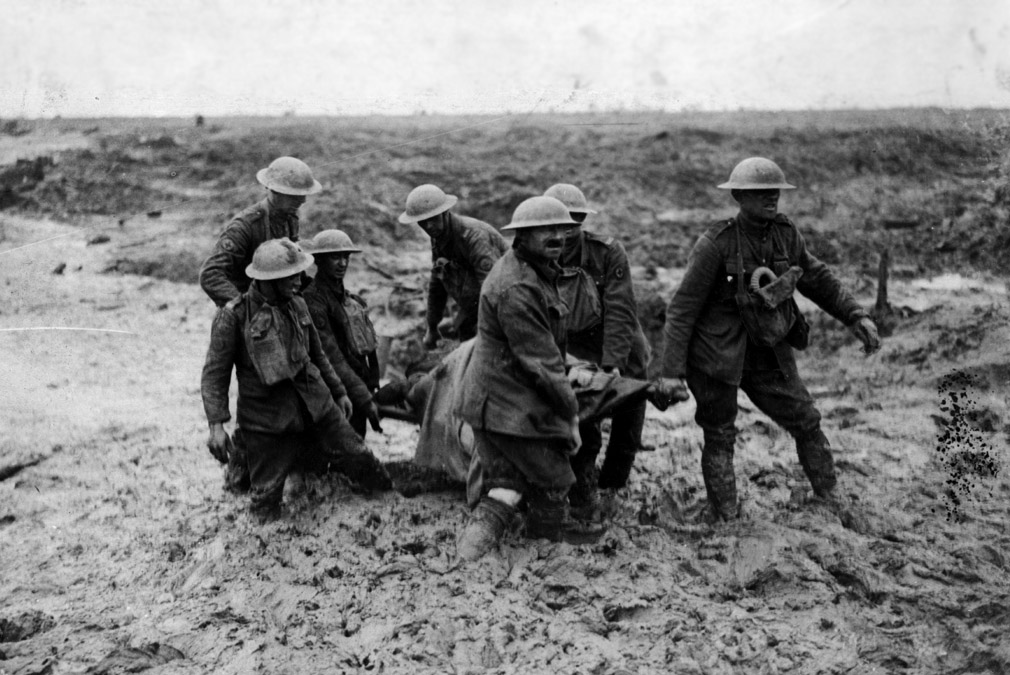
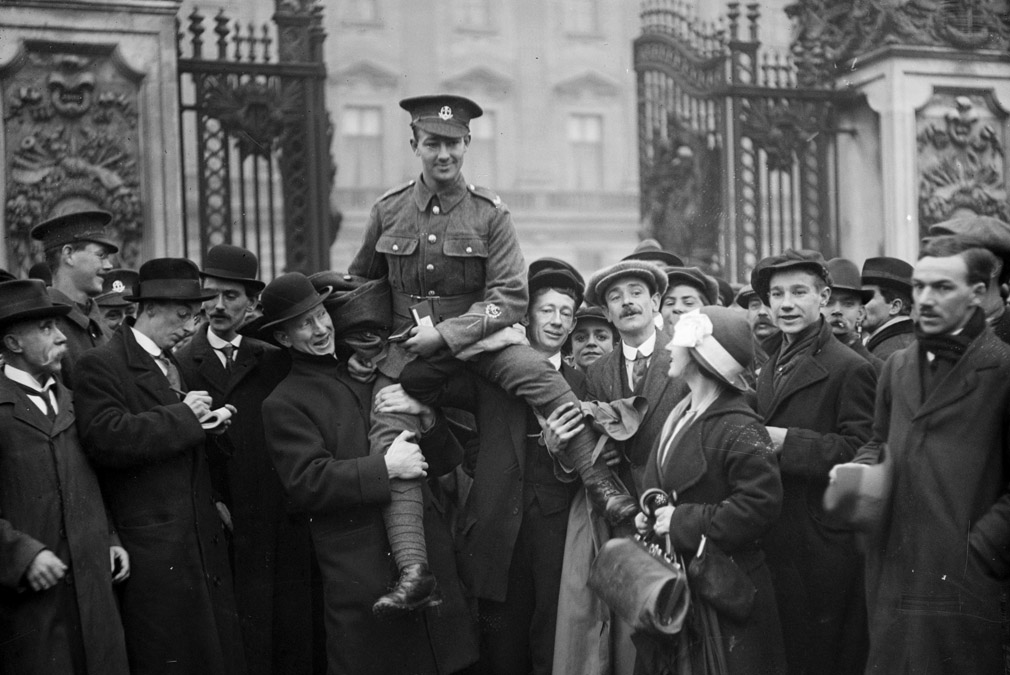
The nation will fall silent at 11am today, 100 years on from the two-minute silence first observed on Armistice Day on 11 November 1919.
Others will take solace and inspiration from the poetry from Britain’s greatest war.
The First World War was “one of the seminal moments of the twentieth century in which literate soldiers, plunged into inhuman conditions, reacted to their surroundings in poems”, writes English lecturer Dr Stuart Lee on Oxford University’s First World War Poetry Digital Archive.
Subscribe to The Week
Escape your echo chamber. Get the facts behind the news, plus analysis from multiple perspectives.

Sign up for The Week's Free Newsletters
From our morning news briefing to a weekly Good News Newsletter, get the best of The Week delivered directly to your inbox.
From our morning news briefing to a weekly Good News Newsletter, get the best of The Week delivered directly to your inbox.
According to BBC’s HistoryExtra, “some 2,200 writers published poetry about the Great War between 1914 and 1918, 25 per cent of them women and fewer than 20 per cent men in uniform”.
Below are some of the best, written during the years of the First World War and beyond.
In Flanders Fields, by John McRae
In Flanders fields the poppies blow
Between the crosses, row on row,
That mark our place; and in the sky
The larks, still bravely singing, fly
Scarce heard amid the guns below.
We are the Dead. Short days ago
We lived, felt dawn, saw sunset glow,
Loved and were loved, and now we lie
In Flanders fields.
Take up our quarrel with the foe:
To you from failing hands we throw
The torch; be yours to hold it high.
If ye break faith with us who die
We shall not sleep, though poppies grow
In Flanders fields.
Marching Men, by Marjorie Pickthall
Under the level winter sky
I saw a thousand Christs go by.
They sang an idle song and free
As they went up to calvary.
Careless of eye and coarse of lip,
They marched in holiest fellowship.
That heaven might heal the world, they gave
Their earth-born dreams to deck the grave.
With souls unpurged and steadfast breath
They supped the sacrament of death.
And for each one, far off, apart,
Seven swords have rent a woman's heart.
The Soldier, by Rupert Brooke
If I should die, think only this of me:
That there’s some corner of a foreign field
That is forever England. There shall be
In that rich earth a richer dust concealed;
A dust whom England bore, shaped, made aware,
Gave, once, her flowers to love, her ways to roam,
A body of England’s, breathing English air,
Washed by the rivers, blest by the suns of home.
And think, this heart, all evil shed away,
A pulse in the eternal mind, no less
Gives somewhere back the thoughts by England given;
Her sights and sounds; dreams happy as her day;
And laughter, learnt of friends; and gentleness,
In hearts at peace, under an English heaven.
A Dead Boche, by Robert Graves
To you who’d read my songs of War
And only hear of blood and fame,
I’ll say (you’ve heard it said before)
”War’s Hell!” and if you doubt the same,
Today I found in Mametz Wood
A certain cure for lust of blood:
Where, propped against a shattered trunk,
In a great mess of things unclean,
Sat a dead Boche; he scowled and stunk
With clothes and face a sodden green,
Big-bellied, spectacled, crop-haired,
Dribbling black blood from nose and beard.
My Boy Jack, by Rudyard Kipling
“Have you news of my boy Jack?”
Not this tide.
“When d’you think that he’ll come back?”
Not with this wind blowing, and this tide.
“Has any one else had word of him?”
Not this tide.
For what is sunk will hardly swim,
Not with this wind blowing, and this tide.
“Oh, dear, what comfort can I find?”
None this tide,
Nor any tide,
Except he did not shame his kind —
Not even with that wind blowing, and that tide.
Then hold your head up all the more,
This tide,
And every tide;
Because he was the son you bore,
And gave to that wind blowing and that tide!
For the Fallen, by Robert Laurence Binyon
With proud thanksgiving, a mother for her children,
England mourns for her dead across the sea.
Flesh of her flesh they were, spirit of her spirit,
Fallen in the cause of the free.
Solemn the drums thrill: Death august and royal
Sings sorrow up into immortal spheres.
There is music in the midst of desolation
And a glory that shines upon our tears.
They went with songs to the battle, they were young,
Straight of limb, true of eye, steady and aglow.
They were staunch to the end against odds uncounted,
They fell with their faces to the foe.
They shall grow not old, as we that are left grow old:
Age shall not weary them, nor the years condemn.
At the going down of the sun and in the morning
We will remember them.
They mingle not with their laughing comrades again;
They sit no more at familiar tables of home;
They have no lot in our labour of the day-time;
They sleep beyond England's foam.
But where our desires are and our hopes profound,
Felt as a well-spring that is hidden from sight,
To the innermost heart of their own land they are known
As the stars are known to the Night;
As the stars that shall be bright when we are dust,
Moving in marches upon the heavenly plain,
As the stars that are starry in the time of our darkness,
To the end, to the end, they remain.
The Cenotaph, by Charlotte Mew
Not yet will those measureless fields be green again
Where only yesterday the wild sweet blood of wonderful youth was shed;
There is a grave whose earth must hold too long, too deep a stain,
Though for ever over it we may speak as proudly as we may tread.
But here, where the watchers by lonely hearths from the thrust of an inward sword have more slowly bled,
We shall build the Cenotaph: Victory, winged, with Peace, winged too, at the column's head.
And over the stairway, at the foot - oh! here, leave desolate, passionate hands to spreadV
iolets, roses, and laurel with the small sweet twinkling country things
Speaking so wistfully of other Springs
From the little gardens of little places where son or sweetheart was born and bred.
In splendid sleep, with a thousand brothers
To lovers - to mothers
Here, too, lies he:
Under the purple, the green, the red,
It is all young life: it must break some women's hearts to see
Such a brave, gay coverlet to such a bed!
Only, when all is done and said,
God is not mocked and neither are the dead.
For this will stand in our Market-place -
Who'll sell, who'll buy
(Will you or I
Lie each to each with the better grace)?
While looking into every busy whore's and huckster's face
As they drive their bargains, is the Face
Of God: and some young, piteous, murdered face.
To his love, by Ivor Gurney
He’s gone, and all our plans
Are useless indeed.
We’ll walk no more on Cotswolds
Where the sheep feed
Quietly and take no heed.
His body that was so quick
Is not as you
Knew it, on Severn River
Under the blue
Driving our small boat through.
You would not know him now…
But still he died
Nobly, so cover him over
With violets of pride
Purple from Severn side.
Cover him, cover him soon!
And with thick-set
Masses of memoried flowers-
Hide that red wet
Thing I must somehow forget.
Dulce et Decorum Est, by Wilfred Owen
Bent double, like old beggars under sacks,
Knock-kneed, coughing like hags, we cursed through sludge,
Till on the haunting flares we turned our backs
And towards our distant rest began to trudge.
Men marched asleep. Many had lost their boots
But limped on, blood-shod. All went lame; all blind;
Drunk with fatigue; deaf even to the hoots
Of tired, outstripped Five-Nines that dropped behind.
Gas! GAS! Quick, boys! - An ecstasy of fumbling,
Fitting the clumsy helmets just in time;
But someone still was yelling out and stumbling
And flound'ring like a man in fire or lime ...
Dim, through the misty panes and thick green light,
As under I green sea, I saw him drowning.
In all my dreams, before my helpless sight,
He plunges at me, guttering, choking, drowning.
If in some smothering dreams you too could pace
Behind the wagon that we flung him in,
And watch the white eyes writhing in his face,
His hanging face, like a devil's sick of sin;
If you could hear, at every jolt, the blood
Come gargling from the froth-corrupted lungs,
Obscene as cancer, bitter as the cud
Of vile, incurable sores on innocent tongues, --
My friend, you would not tell with such high zest
To children ardent for some desperate glory,
The old lie: Dulce et decorum est
Pro patria mori.
To Germany, by Charles Hamilton Sorley
You are blind like us. Your hurt no man designed,
And no man claimed the conquest of your land.
But gropers both through fields of thought confined
We stumble and we do not understand.
You only saw your future bigly planned,
And we, the tapering paths of our own mind,
And in each others dearest ways we stand,
And hiss and hate. And the blind fight the blind.
When it is peace, then we may view again
With new won eyes each other's truer form
And wonder. Grown more loving kind and warm
We'll grasp firm hands and laugh at the old pain,
When it is peace. But until peace, the storm,
The darkness and the thunder and the rain.
MCMXIV, by Phillip Larkin
Those long uneven lines
Standing as patiently
As if they were stretched outside
The Oval or Villa Park,
The crowns of hats, the sun
On moustached archaic faces
Grinning as if it were all
An August Bank Holiday lark;
And the shut shops, the bleached
Established names on the sunblinds,
The farthings and sovereigns,
And dark-clothed children at play
Called after kings and queens,
The tin advertisements
For cocoa and twist, and the pubs
Wide open all day;
And the countryside not caring:
The place-names all hazed over
With flowering grasses, and fields
Shadowing Domesday lines
Under wheat’s restless silence;
The differently-dressed servants
With tiny rooms in huge houses,
The dust behind limousines;
Never such innocence,
Never before or since,
As changed itself to past
Without a word – the men
Leaving the gardens tidy,
The thousands of marriages,
Lasting a little while longer:
Never such innocence again.
Break of Day in the Trenches, by Isaac Rosenberg
The darkness crumbles away.
It is the same old druid Time as ever,
Only a live thing leaps my hand,
A queer sardonic rat,
As I pull the parapet’s poppy
To stick behind my ear.
Droll rat, they would shoot you if they knew
Your cosmopolitan sympathies.
Now you have touched this English hand
You will do the same to a German
Soon, no doubt, if it be your pleasure
To cross the sleeping green between.
It seems you inwardly grin as you pass
Strong eyes, fine limbs, haughty athletes,
Less chanced than you for life,
Bonds to the whims of murder,
Sprawled in the bowels of the earth,
The torn fields of France.
What do you see in our eyes
At the shrieking iron and flame
Hurled through still heavens?
What quaver — what heart aghast?
Poppies whose roots are in man’s veins
Drop, and are ever dropping;
But mine in my ear is safe —
Just a little white with the dust.
For a survivor of the Mesopotamian campaign, by Elizabeth Daryush
War’s wasted era is a desert shore,
As know those who have passèd there, a place
Where, within sound of swoll’n destruction’s roar,
Wheel the wild vultures, lust and terror base;
Where, making ready for them, stalk the grim
Barbarian forms, hunger, disease and pain,
Who, slashing all life’s beauty limb from limb,
Crush it as folly on the stony plain.
A desert: – those too who, as thou, have been
Followers of war’s angel, Sacrifice,
(Stern striders to beyond brute torment’s scene,
Soarers above the swerves of fear and vice)
Know that the lightning of his ghostly gaze
Has wrecked for them for ever earth’s small ways.
Here dead we lie, by A. E. Housman
Here dead we lie because we did not choose
To live and shame the land from which we sprung.
Life, to be sure, is nothing much to lose,
But young men think it is, and we were young.
June, 1915, by Charlotte Mew
Who thinks of June's first rose today?
Only some child, perhaps, with shining eyes and
rough bright hair will reach it down.
In a green sunny lane, to us almost as far away
As are the fearless stars from these veiled lamps of town.
What's little June to a great broken world with eyes gone dim
From too much looking on the face of grief, the face of dread?
Or what's the broken world to June and him
Of the small eager hand, the shining eyes, the rough bright head?
Perhaps, by Vera Brittain
(Dedicated to her fiance Roland Aubrey Leighton, who was killed at the age of 20 by a sniper in 1915, four months after she had accepted his marriage proposal)
Perhaps some day the sun will shine again,
And I shall see that still the skies are blue,
And feel once more I do not live in vain,
Although bereft of You.
Perhaps the golden meadows at my feet
Will make the sunny hours of spring seem gay,
And I shall find the white May-blossoms sweet,
Though You have passed away.
Perhaps the summer woods will shimmer bright,
And crimson roses once again be fair,
And autumn harvest fields a rich delight,
Although You are not there.
Perhaps some day I shall not shrink in pain
To see the passing of the dying year,
And listen to Christmas songs again,
Although You cannot hear.
But though kind Time may many joys renew,
There is one greatest joy I shall not know
Again, because my heart for loss of You
Was broken, long ago.
A free daily email with the biggest news stories of the day – and the best features from TheWeek.com
-
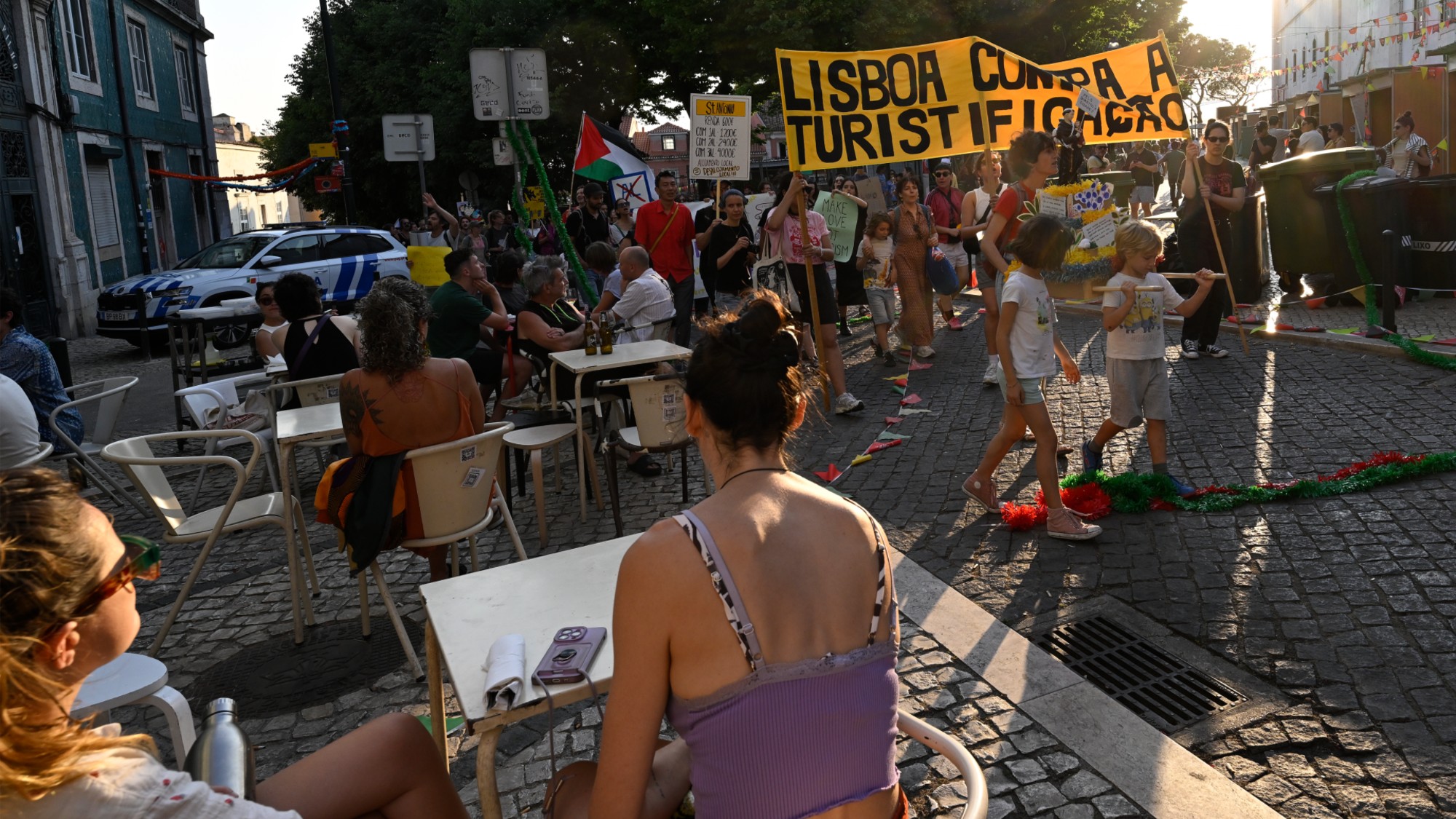 'Is it even possible to enjoy a trip without contributing to the problem?'
'Is it even possible to enjoy a trip without contributing to the problem?'Instant Opinion Opinion, comment and editorials of the day
-
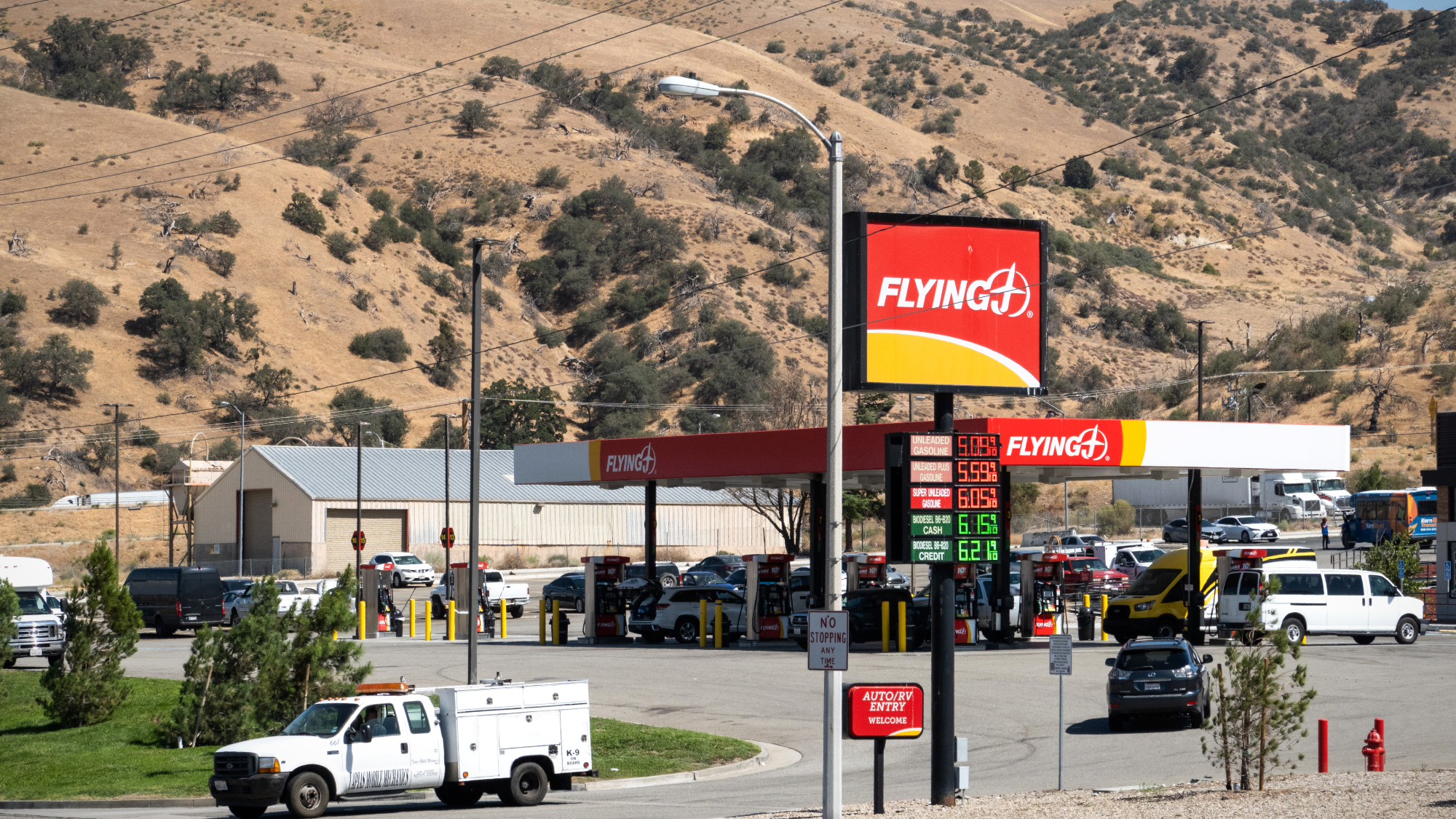 7 charged in LA for 'largest jewelry heist in US history'
7 charged in LA for 'largest jewelry heist in US history'Speed Read The purported thieves stole an estimated $100 million worth of items
-
 ICE arrests NYC comptroller at courthouse
ICE arrests NYC comptroller at courthouseSpeed Read Brad Lander was held for about four hours before being released
-
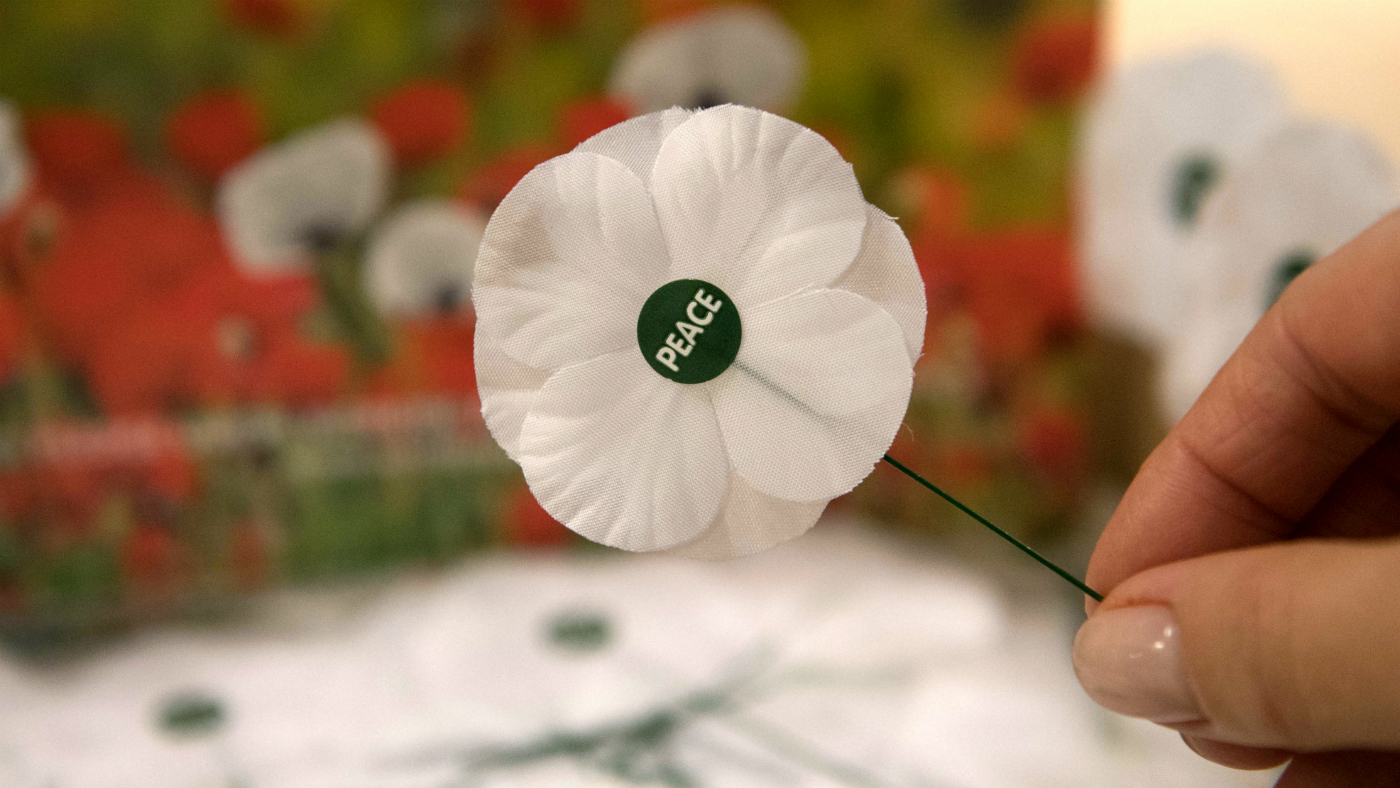 What do the different coloured poppies symbolise?
What do the different coloured poppies symbolise?In Depth Volunteers are distributing millions of poppies in the run up to Remembrance Day
-
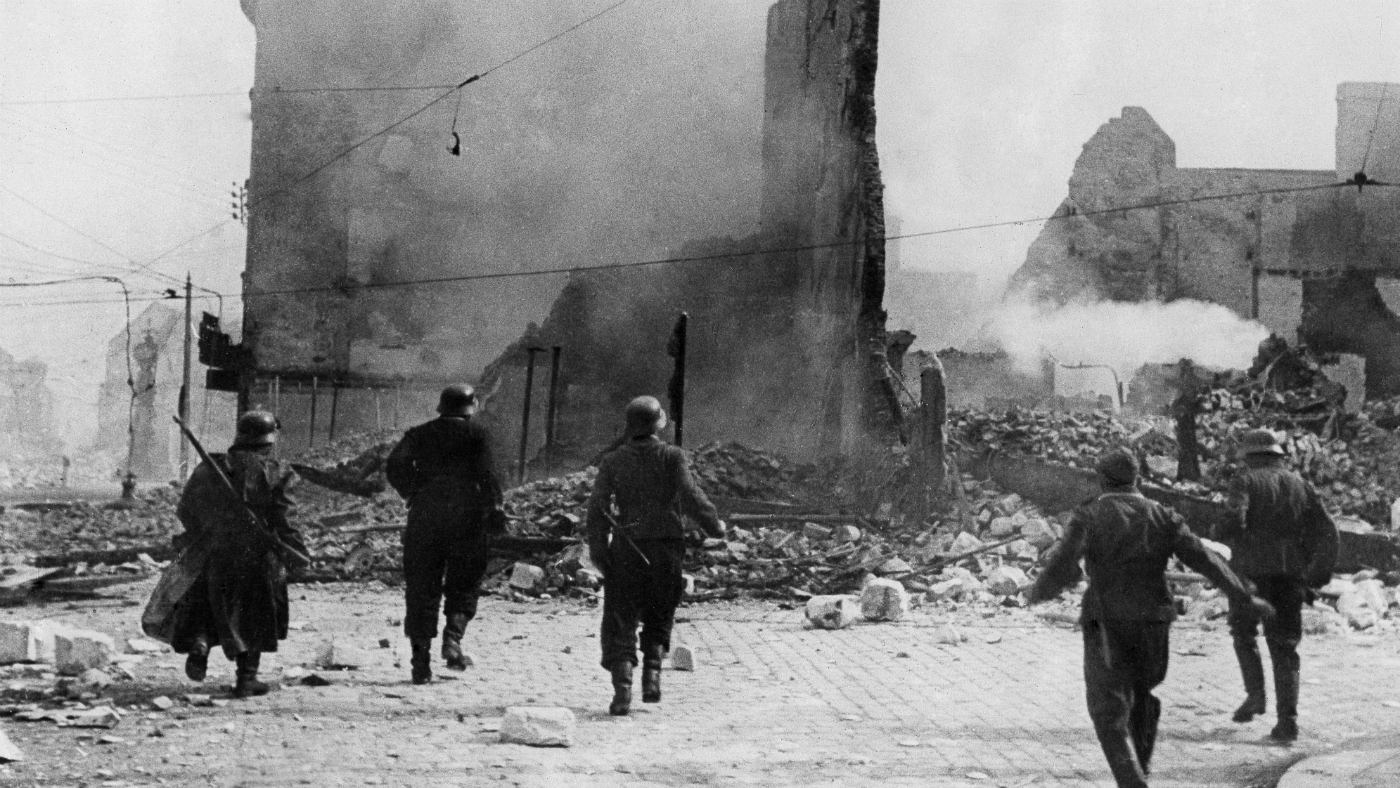 First World War: four things we get wrong
First World War: four things we get wrongIn Depth
-
 What happened at the Battle of Amiens
What happened at the Battle of AmiensIn Depth Theresa May is in France to mark 100th anniversary of one of the most pivotal events of First World War
-
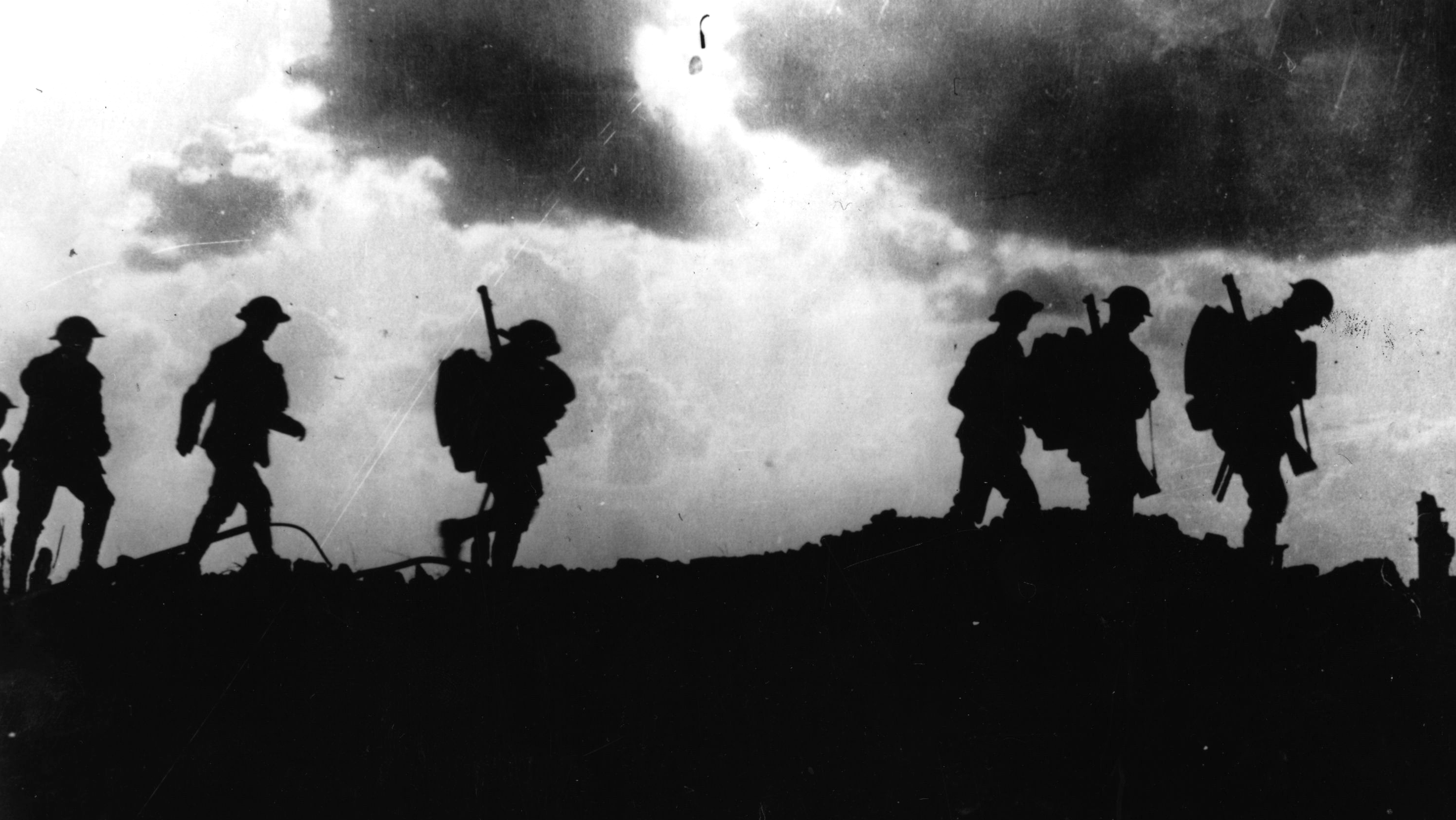 The secret history of the gay soldiers who served in the First World War
The secret history of the gay soldiers who served in the First World WarIn Depth Discrimination and persecution has led to gay soldiers of the Great War being seen as tragic figures, but this was not always the case
-
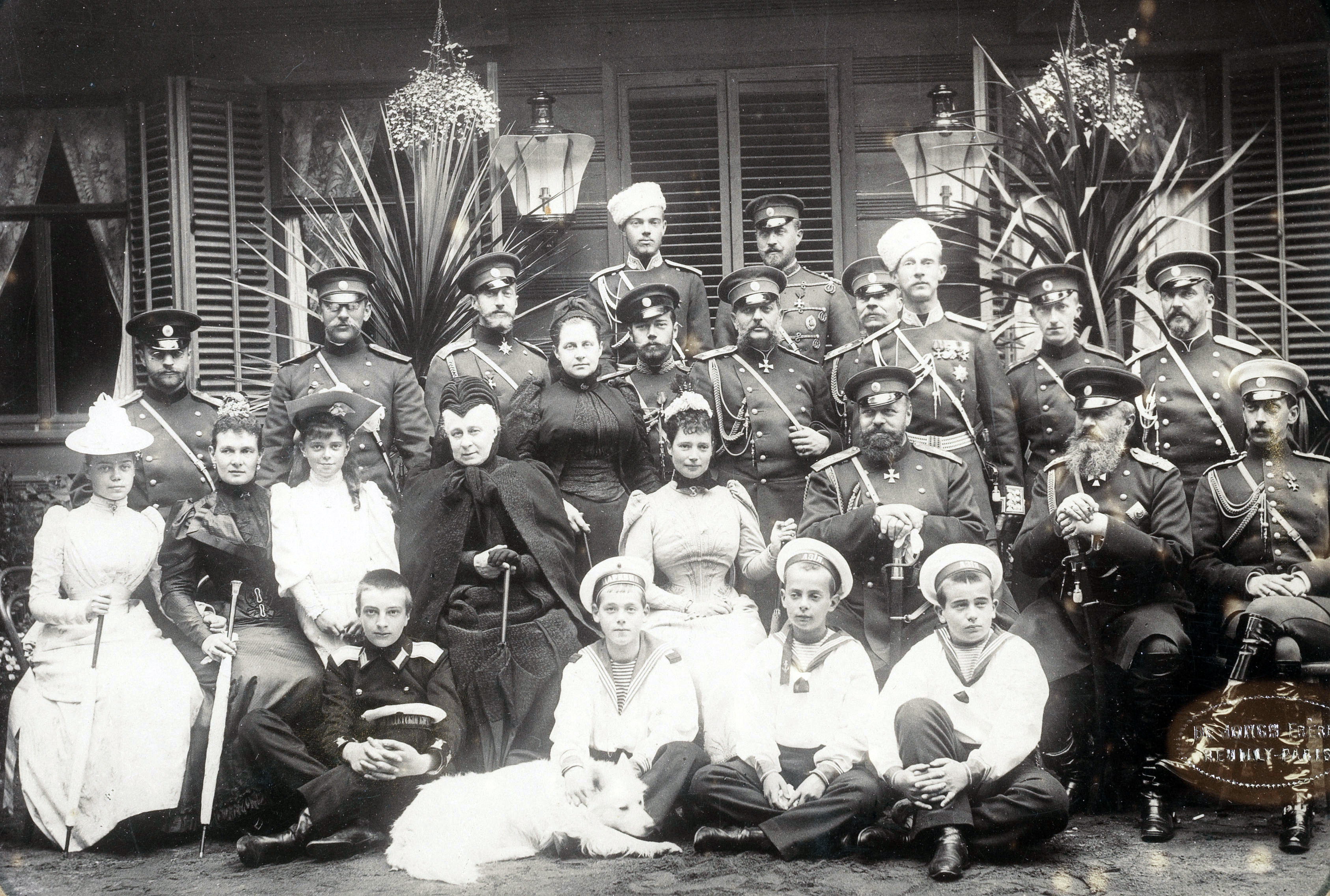 The Romanoffs: how did the Tsar and his family die?
The Romanoffs: how did the Tsar and his family die?In Depth New series about descendants of the Russian royal family comes to Amazon Prime
-
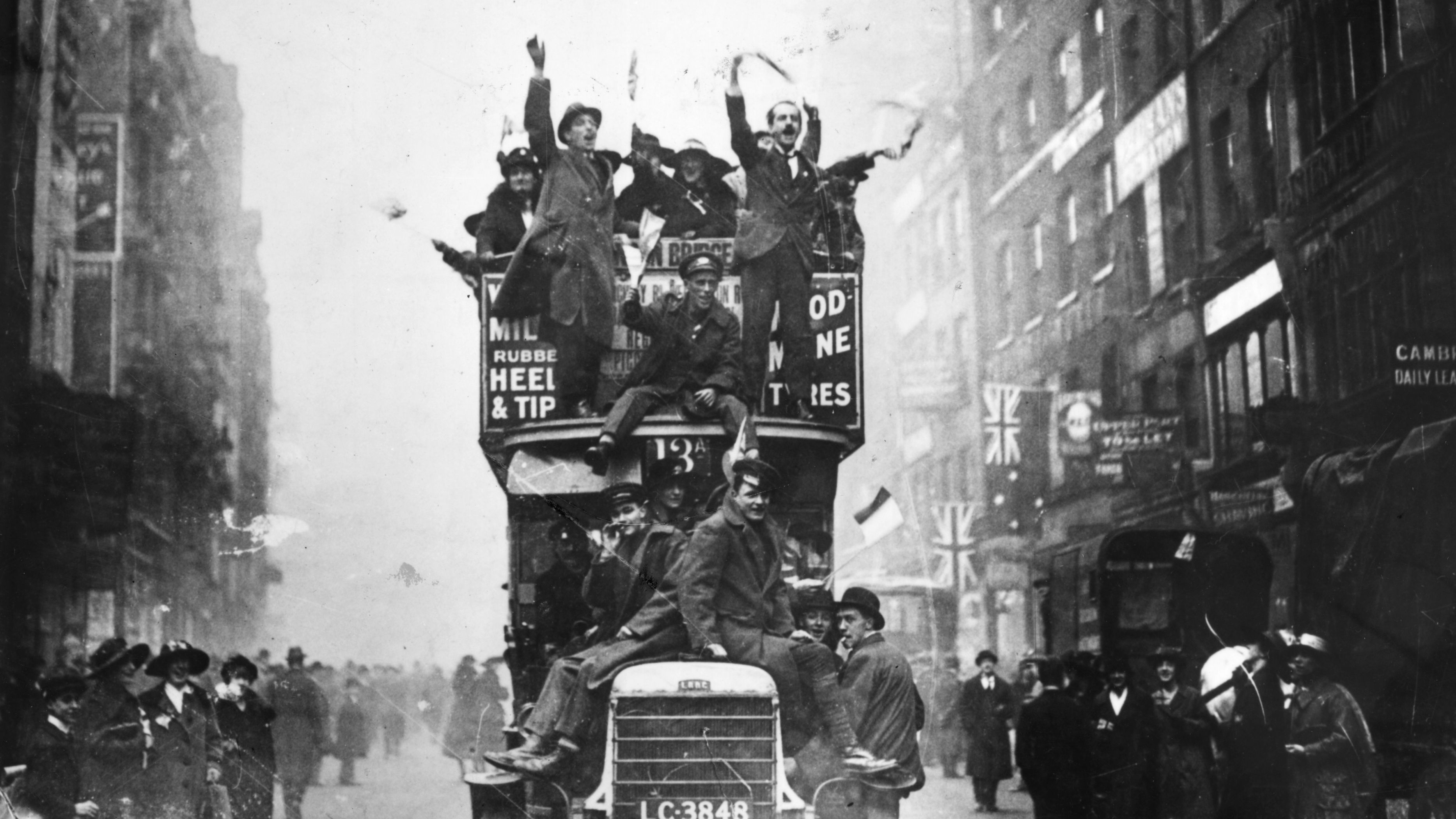 How did World War One end?
How did World War One end?In Depth Duchess of Cornwall marks Armistice Day at Westminster Abbey
-
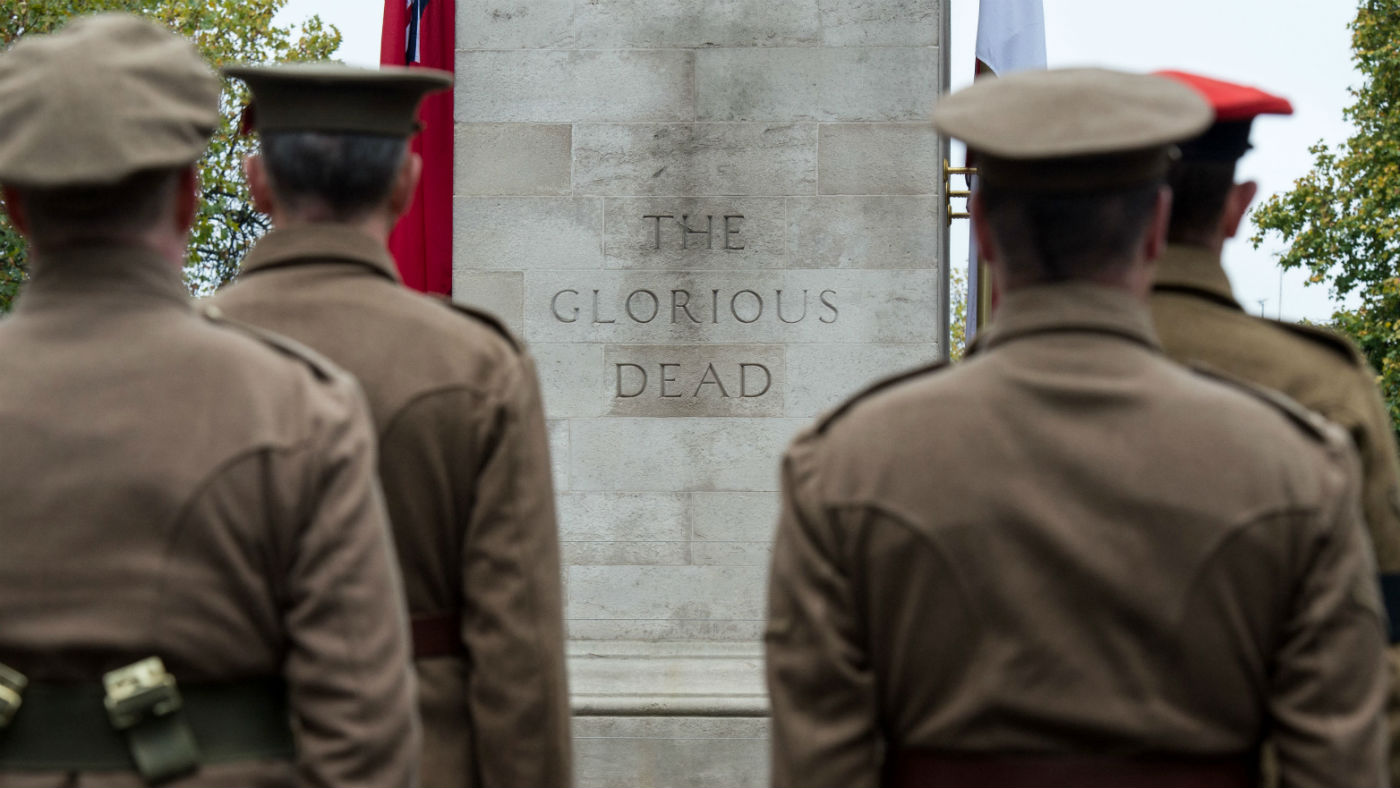 First World War centenary: Armistice events around the UK
First World War centenary: Armistice events around the UKThe Week Recommends A selection of events going on around the country as the UK prepares to commemorate 100 years since the end of World War One
-
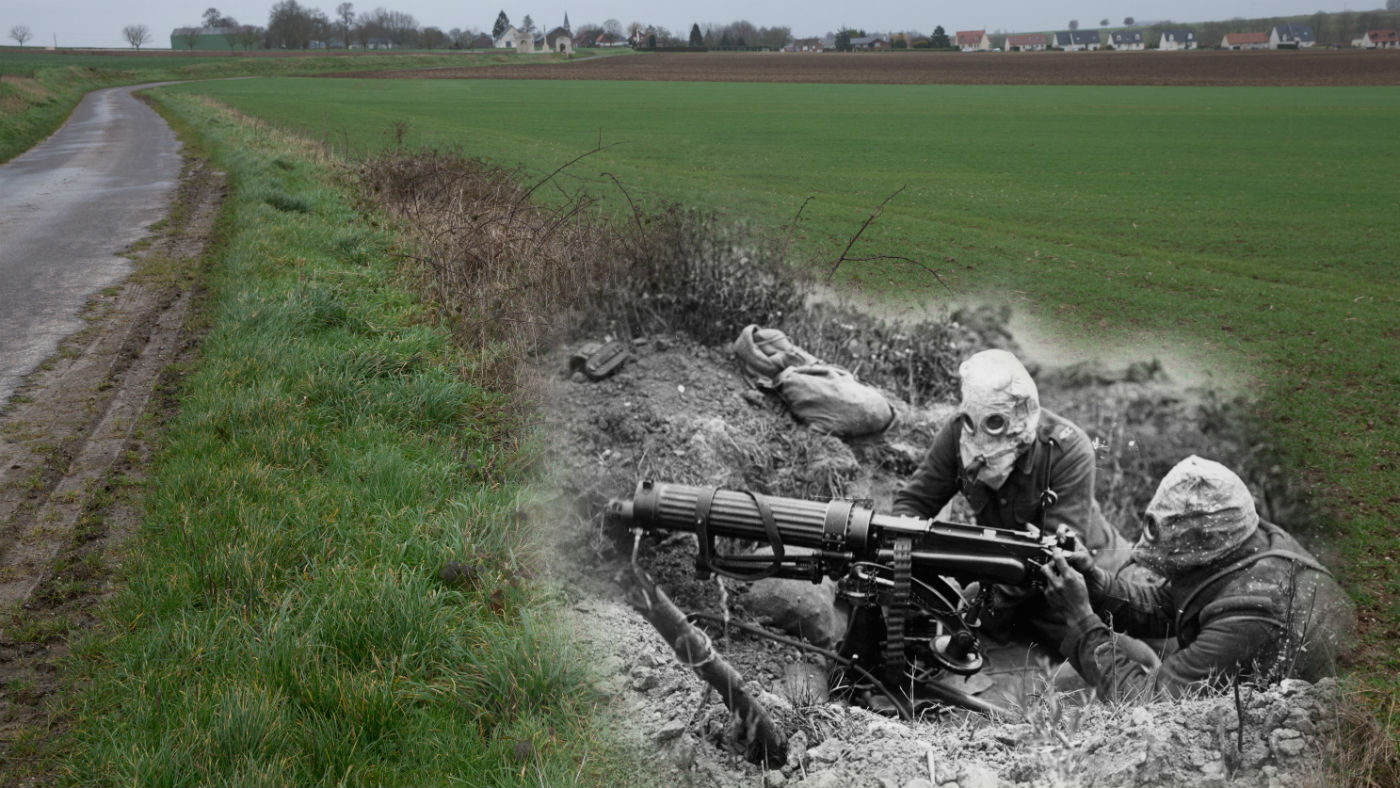 First World War composite photos bring past to life
First World War composite photos bring past to lifeIn Depth Then-and-now images put snapshots of the Great War in a 21st century setting